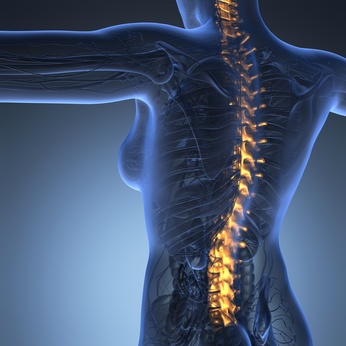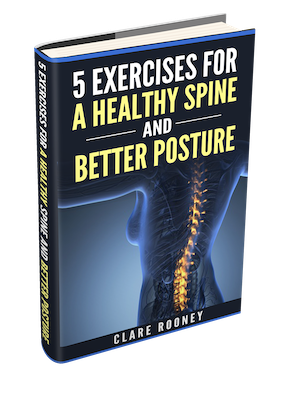Know Your Essential Fats

The Corrective Process: What you need to understand if you have Back Pain.
December 6, 2017
The Many Benefits of Red Meat
April 11, 2018We are living in a world where powerful marketing campaigns seem to have the power to over ride scientific facts. That is of course unless you are an informed consumer. Its one of my primary goals , with this blog, to educate you, the consumer about the facts when it comes to your health. Most people are now aware of the importance of essential fats for their heart health and a ton more besides. However there is a lot of confusion about the best source of these fats. Many people have the mistaken belief that if they ingest flaxseed oil or hempseed oil that they are covered. Today in this blog I clear up the confusion about your best source of essential fats.
What kind of fats do you need?
The body needs a broad fatty acid profile. Fatty acids are what fats are broken down into once digested (along with glycerol). Essential fats are ones the body can’t make on its own. There are 2 of them; alpha-linolenic acid and linoleic acid. These are found from plant sources.
The body then converts the plant form of the fatty acid into a form it can use.
This creates EPA and DHA (eicosapentaenoic acid and docosahexaenoic acid ) from ALA and Gamma linoleic acid (GLA)from linoleic acid (LA). EPA is largely associated with its anti-inflammatory properties and DHA is essential for nervous system and Brain health.
The best source of essential fats.
Many people mistakenly believe that if they take flax or hempseed oil or some other commercially produced plant based oil that they have their essential fatty acid requirements covered. This could not be further from the truth. A diet high in LA can inhibit the conversion of ALA into EPA and DHA by as much as 40%. Many cofactors are required to make the conversion of ALA to EPA and DHA; these include vitamin C, B6, B3, zinc and magnesium. Practically everyone has low levels of at least one of these nutrients. Research also shows that less than 15% of ALA converts to EPA and less than 5% converts to DHA even when conditions are ideal! (1)
In one study supplementing with hemp seed oil for 12 weeks did not increase EPA and DHA at all and flaxseed supplementation only increased ALA (2)
High intakes of omega 6 fatty acids ( largely from refined vegetable oils) can reduce the conversion of ALA to EPA and DHA by as much as 40-50%.(3)
In people with diabetes and metabolic syndrome ,which is essentially a sliding scale of poor blood sugar handling, difficulties can arise making the conversion from ALA to EPA and DHA due to difficulties with enzymes needed in the conversion process (4)
In my practice the vast majority of clients I see (over 90%) have some degree of blood sugar handling issues, at least until they get their nutrition and exercise programs sufficiently implemented. This is one of the many reasons why I never recommend plant based sources of essential fats.
One can get omega 3s by eating oily fish a few times a week but care is required not to heat to too high temperatures so as to minimise the damage to the sensitive EPA and DHA molecules that are rapidly oxidised (and thereby damaged).
The best option is to take an additional supplement of pure pharmaceutical grade fish oil at a dose of at least 1 teaspoon of fish oil per day as a base line. I use higher amounts of fish oils for limited periods of time with clients who have potentially been deficient in these fatty acids for years. Persons who have very high levels of body fat (over 20% for men and over 25% for women) can really benefit from such a tactic. It’s not recommended for everyone however. Pregnant women need to seek individual guidance on any supplementation , those who are scheduled for surgery are advised to stop taking fish oil supplements a few weeks before surgery to aid in blood clotting ( fish oil reduces the stickiness/viscosity of the blood reducing its ability to clot as effectively). The 5ml baseline works well for most populations but if you are considering more then seek professional advice.
Fish oils can help mitigate most if not all disease conditions from Inflammation to Obesity, to Depression to, to Alzheimer’s disease to Multiple Sclerosis to Diabetes and Heart Disease.
“Almost everybody should be on omega 3 fatty acids for cardiovascular protection”
Dr Mark Huston MD The Hypertension and Vascular Institute – Vanderbilt
So make sure you are getting the right source of essential fats. Otherwise you will miss out on their amazing benefits.
For more on Fats see my book Cracking the Mind Body Code.
For coaching in Nutrition and Lifestyle try one of my programs: An Introduction to Metabolic Typing
Nutrition and Lifestyle Transformation Course and Holistic Living Program
References:
- Harris WS. Omega-3 fatty acids. In: Coates PM, Betz JM, Blackman MR, et al., eds. Encyclopedia of Dietary Supplements. 2nd ed. London and New York: Informa Healthcare; 2010:577-86.
- https://www.researchgate.net/publication/5393495_A_Comparison_of_Fish_Oil_Flaxseed_Oil_and_Hempseed_Oil_Supplementation_on_Selected_Parameters_of_Cardiovascular_Health_in_Healthy_Volunteers
- Int J Vit Nutr Res. 1998;68(3):159-173.
- Biotechnol J. 2006;1(4):420-439.





